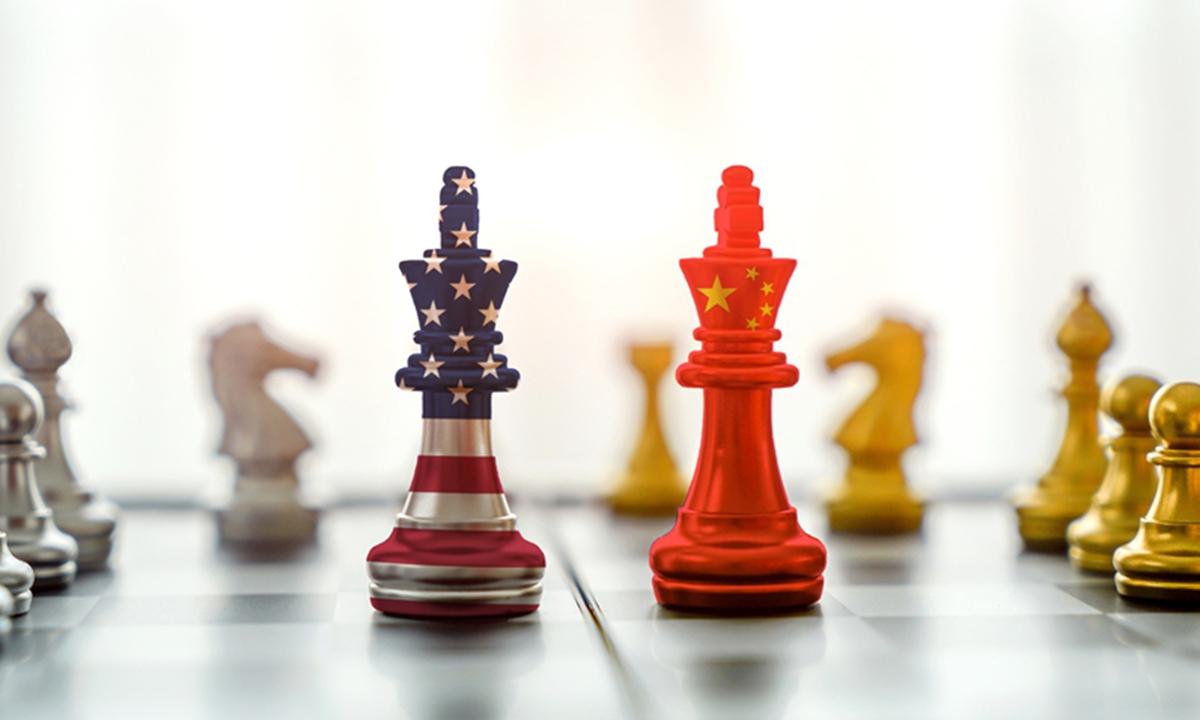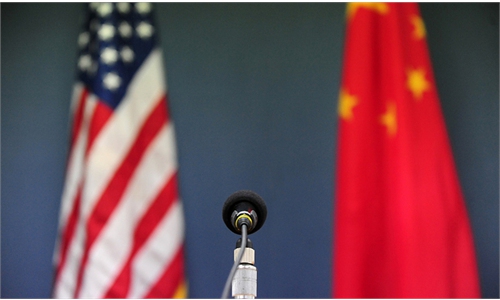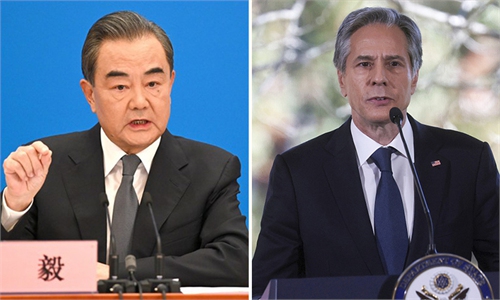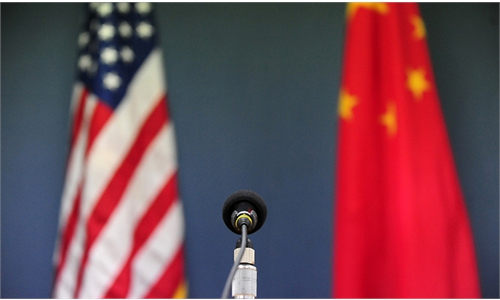Washington eases stance on trade ahead of Xi-Biden talks
Biden more eager to fix issues with China amid domestic woes

China-US Photo: GT
Ahead of a virtual meeting between Chinese and US top leaders, some senior US officials hinted at lifting tariffs in resolving the trade dispute between the world's two largest economies.
Faced with growing inflation pressure domestically and plunging approval ratings for US President Joe Biden for his handling of the economy, Washington appeared to be much more eager to work with Beijing by further easing its stance on issues like trade.
As China-US relations are now at a critical crossroads, the virtual meeting between Chinese President Xi Jinping and Biden scheduled for Tuesday morning (Beijing time) is a major event for China-US relations and for international relations. Chinese and American people, in addition to the international community, expect the meeting to yield positive results for the two countries and the world, Zhao Lijian, spokesperson of the Chinese Foreign Ministry, told a routine press conference on Monday.
"According to negotiations of the two sides, President Xi and President Biden will hold in-depth and candid discussions on strategic issues concerning the future of China-US relations, and important issues of common concern," Zhao said.
A day ahead of the meeting, Treasury Secretary Janet Yellen told CBS on Sunday that tariffs "do tend to raise domestic prices," as the US inflation hit a 31-year high in October and the nation has been facing energy price hikes and supply chain disruptions, heavily weighing on the prospects of the US economy.
She recognized that "it would make some difference" when she was asked if the Biden administration lifts the tariffs imposed by former president Donald Trump, adding that US trade representative Katherine Tai was "revisiting" the phase one trade deal and recognized requests "to reduce tariffs in some areas."
Yellen's response reflected those of two dozen US business associations, which recently urged the Biden administration to reduce tariffs on Chinese goods to provide relief to Americans amid rising inflation.
Led by the US-China Business Council, the business associations said in a letter sent to Tai and Yellen on Friday that tariffs put in place over the last several years continue to disproportionately cause economic harm to US businesses, farmers, workers and families, according to media reports.
American importers have paid over $110 billion for the so-called "Section 301" tariffs on Chinese goods, of which about $40 billion has been assessed during the Biden Administration, according to the letter.
Washington appeared to be much eager tobring up issues like trade as it has to work with Beijing considering its domestic economic woes and political struggles.
Toward healthy competition
Due to rising inflation in the US, reducing tariffs would be more a US hope than China's, some experts said.
The high-level meeting might highlight a wide range of trade-related topics of mutual concern, from macroeconomic policies to tariffs and US crackdown on Chinese firms, Gao Lingyun, an expert at the Chinese Academy of Social Sciences in Beijing, told the Global Times on Monday.
"Stable prices in China's exports could be key for the US to maintain its inflation rate at a certain level," he said.
If the talks bear positive results in these areas, trade relations between China and the US might see less conflict, and more of "healthy competition" in the future, Gao said.
Talks on trade already went on before the meeting. On October 26, Chinese Vice Premier Liu He, also chief of the Chinese side of the China-US comprehensive economic dialogue, held a video conversation with Yellen. China expressed concern over issues including the lifting of additional tariffs and sanctions by the US, and fair treatment of Chinese enterprises.
On October 9, Liu also held virtual talks with Tai, when they exchanged views on the implementation of the China-US economic and trade agreement, expressed their concerns and agreed to resolve each other's reasonable concerns through consultations.
A struggling position
In alarming news for the White House, only 41 percent of voters approved of Biden in a Washington Post/ABC survey published on Sunday, continuing a steady downward trend in the president's ratings, according to media reports.
And only 39 percent approved of Biden's handling of the economy, with their confidence shaken by inflation surging to 30-year highs and the supply chain crisis threatening the availability of food and other essentials with the holiday season approaching, the reports said.
Tai and US Commerce Secretary Gina Raimondo also made their first stop to Japan on Monday during a trip to several Asian countries including Singapore and Malaysia this week, in seeking to reduce Trump-era tariffs on products such as steel and aluminum. And the trip also focused on bolstering industrial competitiveness, supply chains and economic security, according to media reports.
"Besides Taiwan, I believe another major focus would be how to define China-US relations, or relations between cooperation and competition. If the US continues pursuing the rivalry strategy against China, it should be put under certain rules rather than building a small circle to contain China, which won't work," Lü Xiang, a research fellow at the Chinese Academy of Social Sciences, told the Global Times.
On the question of tariffs, the Biden administration has been sticking to additional tariffs from the previous administration, which has been putting pressure on the US as those tariffs are much more harmful for the US economy. So the US government will be eager to talk about that, Lü said.
The US has been using ideology on trade and technology issues by setting up barriers for specific countries, and it recently coerced chipset makers such as Taiwan Semiconductor Manufacturing Co and Samsung to provide chip data to the US, which was described as voluntary submission, Zhao said, in reaction to the recent rejection of the Biden administration to Intel's chip production plan in Southwest China's Sichuan Province.
"These actions not only undermine international trade rules and separate global markets, but also ultimately harm others and itself," he said, noting that the US should abandon its zero-sum mentality and take action to safeguard a fair and non-discriminatory market environment.





